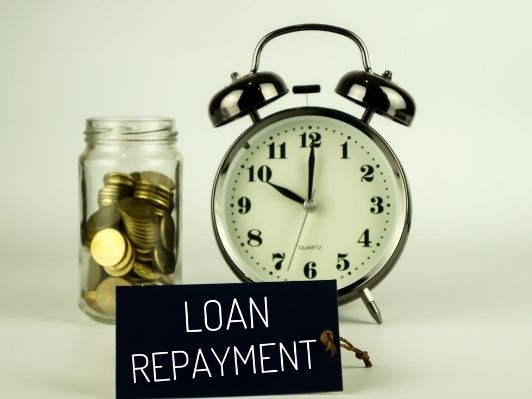Have you thought about paying off your loan early? There’s more than one way of doing it, and you can save money by repaying it early.
Whether it’s a short term loan, a payday loan, an unsecured loan, or any other type of loan, it makes no difference. You can pay them all off whenever you want. You just need to check what the early repayment fees are.
Table of Contents
What About the Early Repayment Charges?
Not all lenders will charge you early repayment fees when you pay off your loan early. It depends on the loan’s terms and conditions. But most lenders are likely to charge you one or two months interest if you’re paying it all off in one go.
Check your loan agreement to find out. When you first took out your loan, the contract you signed will have details on what your early repayment charges are.
If you’re not sure, the best way to check what you’ll be paying back in total is by contacting your lender.
Ready to pay off your loan early and become debt free? Here are our 5 effective tips on how you can do it.
1. Make an Extra Monthly Repayment When You Can
If you’ve got a little extra cash one month, make an extra monthly repayment towards your loan. This could shorten the time left on your loan, and it’ll save you interest. Most lenders will let you do this without it costing you anything in fees.
2. Switch Your Loan To One With a Lower Interest Rate
Switching your loan to one with a lower interest rate is a good thing to do if you can. But the key here is that you keep paying the same amount each month.
So, even though the repayments on the new loan are less, continue to pay what you were paying before on your previous loan. That way you’ll pay off the new loan sooner as well as saving on the interest. Just remember to check your credit score before applying.
3. Got More Than One Debt? Focus on Clearing One Debt at a Time
This does not mean you ignore all your loans and just pay back one. Instead, you could do this:
- Choose the debt with the largest interest rate and pay back a little bit extra on that one each month. As much as you can afford.
- Pay the minimum amount on all your other loans each month.
- Once you’ve paid off the most expensive loan, move on to the next most expensive
- Take all the money you were paying on the first loan and pay it towards the next loan. Keep this up until that one is paid off.
- Repeat the same thing on your next most expensive loan. Then keep doing this until all your loans are paid off.
This is a great way to get on top of your debts and get them paid off quicker.
4. Find Ways to Make Extra Cash Each Month
There are ways of sourcing some extra money that you can then use to reduce your debts. Here are some suggestions on how to free up some cash to put towards repaying your loan:
- Do a budget plan and only spend money on what you have to. Be honest with what you spend and look at where you’re overspending.
- Look around the house – including your wardrobe – and sell anything you don’t use or wear anymore.
- If you’ve got a spare couple of hours, take up some part-time work. Offer to babysit for family friends or pick up a couple of hours work in a local shop or restaurant.
All these things can help to give you some extra money to pay towards your loans.
5. Pay Off Your Loan Early with One Lump Sum
If you’ve found yourself with a spare lump sum of cash, paying off your whole loan early is always a good idea. It can free up those monthly repayments to put towards something else. You could put the money you were paying off the loan with into savings instead.
Remember to check what the early repayment charges are first. Depending on how long you’ve got left on your loan, you may not be saving much.
Disclaimer: Please note, we are not providing financial advice, these are just tips for informational purposes.

